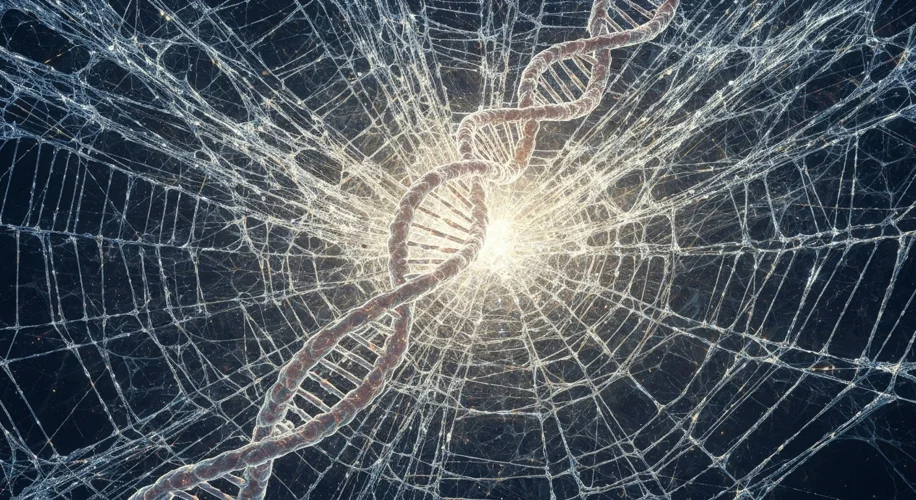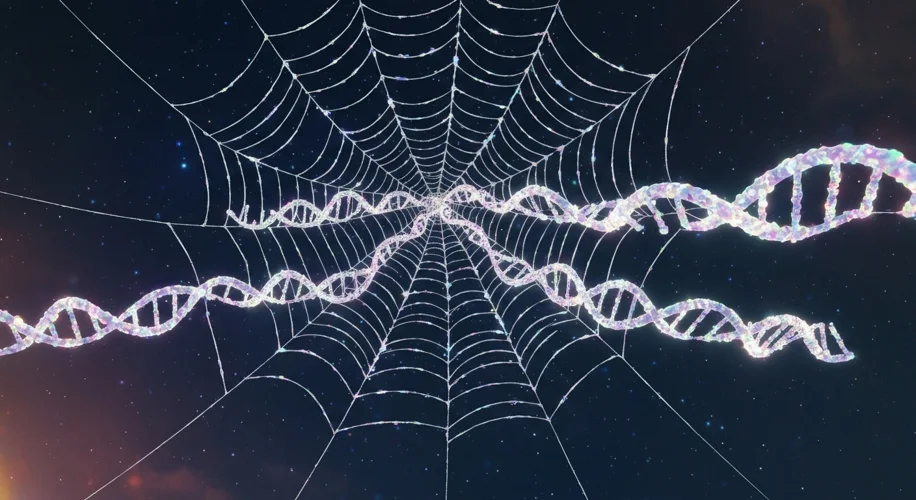In the intricate tapestry of life, evolution has woven countless wonders, often hidden in plain sight. Today, we delve into the shadowy world of spiders, creatures as ancient as they are diverse, and explore a potential discovery that might redefine our understanding of life’s grand evolutionary journey. Recent whispers from the scientific community speak of spiders possessing ‘dark DNA’ – genetic material that defies easy categorization and hints at evolutionary pathways previously unimagined.
For centuries, humans have been both fascinated and repelled by spiders. These eight-legged artisans spin silken masterpieces, preying on insects with remarkable efficiency. Their lineage stretches back over 300 million years, predating the dinosaurs and surviving mass extinctions that wiped out countless other species. This incredible resilience is a testament to their adaptability, a story etched into their very genetic code.
Charles Darwin’s groundbreaking work on natural selection laid the foundation for our modern understanding of evolution. He posited that variations within species, coupled with environmental pressures, drive gradual change over vast stretches of time. This elegant theory has been the bedrock of biology, explaining the stunning diversity of life we see today. Yet, science is a perpetual quest for knowledge, constantly pushing the boundaries of what we know, and sometimes, these new discoveries challenge even our most cherished understandings.
The concept of ‘dark DNA’ isn’t entirely new in biology. It refers to segments of genetic material that don’t code for proteins, or whose function remains obscure. For a long time, these ‘junk DNA’ regions were dismissed as evolutionary leftovers. However, increasingly sophisticated research has revealed that much of this so-called junk plays crucial regulatory roles, influencing how and when genes are expressed. It’s a complex, hidden layer of biological instruction.
Now, imagine this ‘dark DNA’ not just being present, but being exceptionally unusual, perhaps even unique, in spiders. Some researchers are exploring the hypothesis that certain spider lineages might harbor genetic material with an ancient origin, potentially acquired through processes like horizontal gene transfer – the movement of genetic material between unrelated organisms. This would be a paradigm shift, suggesting that spiders might have incorporated genetic information from entirely different branches of the tree of life, an idea that echoes the early, sometimes controversial, theories of evolutionary biologists grappling with the sheer complexity of life’s origins.

If confirmed, this discovery would have profound implications. It could illuminate previously unknown mechanisms of evolution, demonstrating that life’s progress isn’t always a neat, linear progression from ancestor to descendant. Instead, it might reveal a more fluid, interconnected history, where genetic innovation can arise from unexpected sources. For arachnid enthusiasts and evolutionary biologists alike, this opens a thrilling new chapter. It prompts questions about the evolutionary advantages these ‘dark DNA’ elements might confer. Do they contribute to the spider’s remarkable silk production, its potent venom, or its exquisite sensory abilities?
The implications extend beyond the realm of spiders. Understanding how complex genetic material can be acquired and integrated could offer insights into evolutionary processes across the entire spectrum of life. It might even hold clues to understanding human evolution and diseases, showing how our own genetic makeup could have been shaped by ancient, unexpected influences.
This potential breakthrough reminds us that even the most familiar creatures can hold profound secrets. The humble spider, often overlooked or feared, might just be a key to unlocking a deeper, more complex narrative of life on Earth. As scientists continue to unravel the mysteries held within its ‘dark DNA,’ we are left to marvel at the endless ingenuity of evolution and the constant, captivating process of scientific discovery.
For now, the ‘dark DNA’ of spiders remains a tantalizing enigma, a whispered promise of new understanding. It is a testament to the enduring power of curiosity and the relentless human drive to decipher the grand, interconnected story of life itself.

